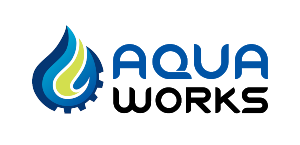Are you selling a house and have a rural water supply?
Is your property for sale and connected to a rainwater harvesting tank?
Did you know that it is illegal in New Zealand to sell a house without a potable waters supply?
If you are selling a house in NZ without potable water and the answer is YES to all three questions, you should continue reading this article to avoid making a crucial mistake when selling your house soon.

Requirements of dwelling houses as to supply of water and sanitary conveniences
The legal basis for this particular requirement to have potable water when selling a house in New Zealand is enshrined in the Health Act 1956 No 65 (as of 09 April 2021). It states in section 39
(1) It shall not be lawful for any person to erect or rebuild any building intended for use as a dwelling house, or for any person to sell, or let, or sublet, or permit to be occupied as a dwelling house, any building or part of a building, unless in every such case sufficient provision is made in accordance with the building code and the Building Act 2004 for the following matters, that is to say:
(a) an adequate and convenient supply of water that is potable (as defined in section 69G), available for the inmates of the dwelling:
So this means, in a nutshell, it is not lawful to sell or let or sublet a building that does not have an adequate supply of POTABLE water.
Services and Facilities – Water Supplies – Performance
In addition, the 1992 Building code states in section G12.3.
G12.3.1 Water intended for human consumption, food preparation, utensil washing, or oral hygiene must be potable.
G12.3.2 A potable water supply system must be—
(a) protected from contamination; and
(b) installed in a manner that avoids the likelihood of contamination within the system and the water main; and
(c) installed using components that will not contaminate the water.
G12.3.4 Water pipes and outlets provided with non-potable water must be clearly identified.
When was the last time you saw a clearly marked water supply?
The meaning of drinking water
The new 2020 Water Services Bill section 6 has redefined what Potable water means and its definition.
In this Act, unless the context otherwise requires, drinking water—
(a) means water that is used for—
(i) human consumption; or
(ii) oral hygiene; or
(iii) preparing food, drink, or other products for human consumption; or
(iv) washing utensils that are used for eating and drinking, or for preparing, serving, or storing food or drink for human consumption; but
The 2020 Water Services Bill is also altering the definitions of ‘safe’ and ‘potable’ in certain pieces of legislation, eg. Building Act 2004 (2004 No 72), Health Act 1956 (1956 No 65), Building Regulations 1992 (SR 1992/150) and Housing Improvement Regulations 1947 (SR 1947/200):
potable water means water that—
(a) is safe to drink; and
(b) complies with the drinking water standards
It is worth noting that as of writing May 2021, the Water Services Bill is passing through parliament as this goes to press. We don’t expect any significant changes. Taumata Arowei, the New Water Service Regulator, is looking at changing some of the detriments and MAV’s in the Drinking Water Standard for New Zealand 2005, which is likely to mean a more stringent requirement for water supplies to meet the Standards.
What does this mean if you are selling a house without potable water?
Simply put, every house or rental property must demonstrate that its water supply meets the Drinking Water Standards of New Zealand, i.e. it must have potable water. For rainwater harvesting, it means that when you sell your house, you must guarantee that the water is E.coli free. Contamination of drinking water by this bacterium is the most likely cause for a failed test. And this, in turn, means that the property does not comply with the legal requirements. A water disinfection system is needed to pass the E.Coli test and ensure that your water is potable and safe to drink. Often the most cost-effective method to safeguard this is using a quality UV filtration system.
If you have a surface water supply, a full bacterial and chemical test must prove that your drinking water meets legal standards. This also applies if you have a bore water supply. As a landlord or vendor, it is your responsibility to show that you meet NZ drinking water standards by providing a water test.
Get a water filtration system for E.Coli free drinking water
With over 20 years of experience, Aqua Works is supporting and advising property owners to comply with the legal requirements in New Zealand. We are happy to help you prove your water is safe to drink with the proper water test.
First, we come to your home to understand the scope of the property. Then, on-site, we determine what is required for compliance and recommend a system that guarantees potable and safe water. There is no one size fits all. Therefore, we only make recommendations on technologies that are specific to your individual needs. Aqua Works guarantees that with a water filtration system installed by us, you will be E.Coli free and meet NZ Drinking Water Standards.
Call us at 0800 278 288 to book a free on-site visit today.
Helpful Links
Health Act 1956 No 65 (as at 09 April 2021). Section 39 Requirements of dwelling houses as to supply of water and sanitary conveniences. Retrieved from https://www.legislation.govt.nz/act/public/1956/0065/latest/DLM306962.html?search=sw_096be8ed81ab31e6_potable_25_se&p=1&sr=0
Building Regulations 1992, The Building code. Section G12 Water Suppliers. Retrieved from https://www.legislation.govt.nz/regulation/public/1992/0150/latest/DLM162576.html?search=sw_096be8ed818412cb_potable_25_se&p=1#DLM164987
Water Services Bill, Schedule 2 Amendments to enactments, Part 1 Amendments to Acts, Building Act 2004 (2004 No 72). Retrieved from https://www.legislation.govt.nz/bill/government/2020/0314/latest/LMS375063.html?search=sw_096be8ed819d2276_potable_25_se&p=1&sr=0
